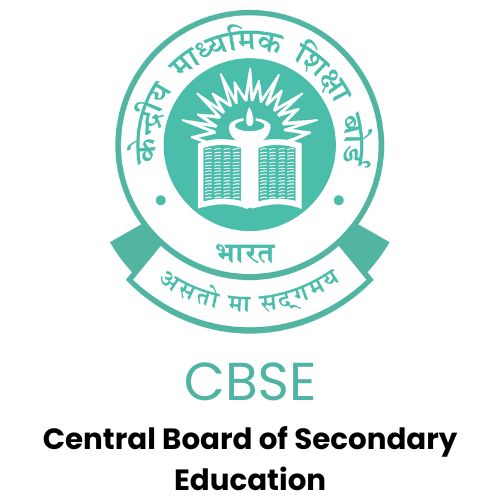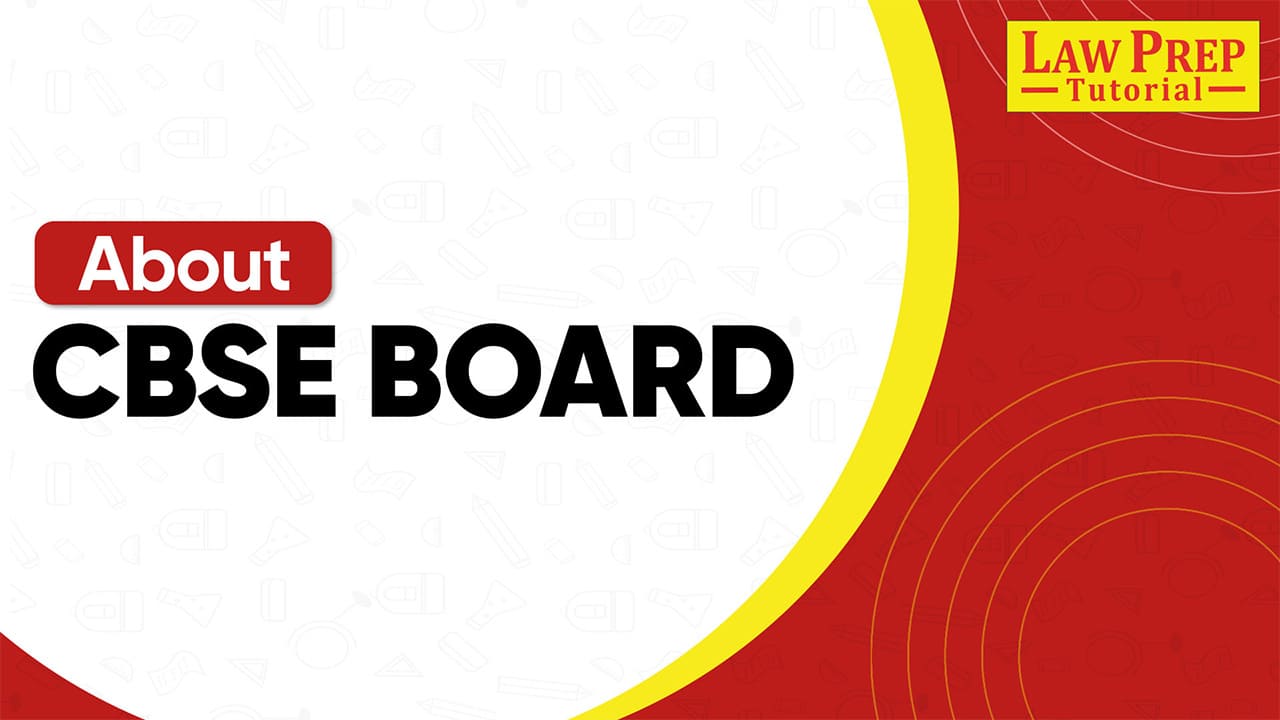The CBSE board is one of India’s leading education boards, managing school exams for lakhs of students nationwide. If you’re preparing for the CBSE exam, it’s essential to have accurate and timely information about exam dates, syllabus, guidelines, and results.
This guide offers everything students from Class 10 to 12 need to succeed in their exams. You’ll find clear explanations, important resources, and easy-to-follow instructions. Whether you want to check the latest updates or download sample papers, this page covers all your CBSE needs in one place.
CBSE Full Form
The full form of CBSE is Central Board of Secondary Education, responsible for school education and exams across India.
What is CBSE?
CBSE, or the Central Board of Secondary Education, is a national-level education board in India. It manages the school education system from primary to higher secondary classes, specifically Classes 1 to 12. CBSE conducts final exams for Class 10 and Class 12 students every year.
This education board sets syllabus guidelines, exam patterns, and assessment criteria, ensuring standardized education nationwide. Affiliated schools must follow CBSE’s rules and curriculum.

The CBSE board also provides resources, like textbooks and training portals, for teachers and students. CBSE plays a key role in preparing students for competitive exams and higher studies by offering quality education.
CBSE official website: https://www.cbse.gov.in/
Importance of CBSE for Indian Students
- Uniform Curriculum Across India: CBSE ensures consistency in education nationwide, allowing smooth transitions between schools.
- Recognition and Acceptance: Widely recognized by universities in India and abroad, facilitating higher education opportunities.
- Focus on Competitive Exams: The syllabus helps students prepare effectively for entrance exams like JEE, NEET, CLAT, CUET, IPMAT, etc.
- Student-friendly Evaluation System: Continuous assessment and practical-oriented learning reduce exam stress for students.
- Regular Updates and Modern Curriculum: CBSE regularly revises its syllabus to include modern and practical knowledge relevant to current trends.
- Emphasis on Overall Development: Encourages academic excellence alongside sports, extracurricular activities, and holistic personality development.
- Availability of Resources and Guidance: Provides extensive study materials, online portals, and training resources, making quality education accessible.
- Wide Network of Affiliated Schools: Vast availability of schools, providing students greater flexibility and accessibility.
- Transparent Examination Process: Clear guidelines, marking schemes, and processes ensure fairness in student evaluation.

CBSE Class 10 Date Sheet 2026
Below is the tentative CBSE class 10th sheet 2026:
| Date | Time | Subject Code | Subject Name |
| February 21, 2026 | 10:30 AM – 01:30 PM | 101, 184 | English (Communicative), English (Language and Literature) |
| March 9, 2026 | 10:30 AM – 12:30 PM | 036, 131-134, 254, 418 | Hindustani Music (Per Ins), Rai, Gurung, Tamang, Sherpa, Elements of Book Keeping & Accountancy, Physical Activity Trainer |
| February 26, 2026 | 10:30 AM – 12:30 PM | 403-422 | Vocational Subjects (Security, Automotive, Financial Markets, Tourism, etc.) |
| February 25, 2026 | 10:30 AM – 01:30 PM | 086 | Science |
| March 7, 2026 | 10:30 AM – 01:30 PM | 087 | Social Science |
| March 2, 2026 | 10:30 AM – 01:30 PM | 002 | Hindi Course-A & B |
| March 6, 2026 | 10:30 AM – 12:30 PM | 049 | Painting |
| February 17, 2026 | 10:30 AM – 01:30 PM | 041, 241 | Mathematics Standard & Basic |
| February 27, 2026 | 10:30 AM – 12:30 PM | 165, 402, 417 | Computer Applications, Information Technology, Artificial Intelligence |
Explore more: CBSE Class 11 Commerce Books
CBSE Class 12 Date Sheet 2026
Here is the tentative CBSE date sheet for class 12th:
| Date | Subject Name |
| February 17, 2026 | Entrepreneurship |
| February 18, 2026 | Physical Education |
| February 21, 2026 | Hindustani Music (Melodic Instruments & Percussion), Multi-Media, Automotive, Healthcare, Data Science, Electronics & Hardware |
| February 20, 2026 | Physics |
| March 28, 2026 | Business Studies, Business Administration |
| February 26, 2026 | Geography |
| March 24, 2026 | French, Taxation, Textile Design, Artificial Intelligence |
| February 28, 2026 | Chemistry |
| April 24, 2026 | Legal Studies |
| March 9, 2026 | Mathematics, Applied Mathematics |
| March 12, 2026 | English Elective, English Core |
| March 16, 2026 | Hindi Elective, Hindi Core, Web Application |
| March 18, 2026 | Economics |
| March 23, 2026 | Political Science |
| March 27, 2026 | Biology |
| February 24, 2026 | Accountancy |
| April 4, 2026 | Sociology |
| March 30, 2026 | History |
| March 25, 2026 | Informatics Practices, Computer Science, Information Technology |
| March 14, 2026 | Home Science |
| March 5, 2026 | Psychology |
Find more about CBSE Class 11th English Syllabus here!
CBSE Exam Guidelines 2026
Items Permitted in CBSE Exam 2026
| Sr. No. | Permitted Items |
| 1 | Admit Card and School Identity Card (Regular students) |
| 2 | Admit Card and Government-issued Photo Identity Proof (Private students) |
| 3 | Transparent pouch or geometry/pencil box |
| 4 | Blue or royal blue ink pen, ballpoint pen, or gel pen |
| 5 | Scale, writing pad, eraser |
| 6 | Analogue watch and transparent water bottle |
| 7 | Metro card, bus pass, money |
Items Prohibited in CBSE Exam 2026
| Sr. No. | Prohibited Items |
| 1 | Any textual materials (printed or handwritten notes) |
| 2 | Bits of paper |
| 3 | Calculator (Exception: Dyscalculia students provided by the exam centre) |
| 4 | Pen drives, electronic pens, scanners, log tables (provided by centres) |
| 5 | Mobile phone, Bluetooth devices, earphones, microphones, pagers |
| 6 | Health bands, smart watches, cameras |
| 7 | Wallets, handbags, pouches, goggles |
| 8 | Any eatable items (except for diabetic students with medical requirement) |
| 9 | Any other item usable for unfair means |
Important Note:
Using any prohibited item or similar materials will be considered as “Unfair Means,” resulting in disciplinary actions as per CBSE rules.
Dress Code for CBSE Exam 2026
| Student Category | Dress Code |
| Regular Students | School Uniform |
| Private Students | Light Clothes |
Also checkout the complete Class 11 Economics Syllabus!
CBSE Admit Card 2026 (Class 10 & Class 12)
The Central Board of Secondary Education (CBSE) releases the admit cards for Classes 10 and 12 in the first week of February. This crucial document is required for entry into the exam hall, and no student can appear in the CBSE exams without it.
| Admit Card Type | Release Date |
| Regular Students | First Week of February 2026 (Tentative) |
| Private Students | First Week of February 2026 (Tentative) |
How to Download CBSE Admit Card 2026:
- Regular Students: Admit cards are provided by the respective schools. Students should collect them from their schools in a timely manner.
- Private Students: Admit cards can be downloaded from CBSE’s official website once available. The direct link will be active from February first week.
CBSE Passing Marks Criteria 2026
| Class | Passing Marks Criteria |
| Class 10 | Minimum 33% marks overall (combined theory and internal assessment). |
| Class 12 | Minimum 33% marks separately in theory and practical exams. |
Know about 12th Marks Criteria for CLAT Exam.
Factors to Consider When Choosing a CBSE School
- Academic Reputation: Consistent exam results and performance.
- Quality of Teaching Staff: Experienced, qualified, and supportive teachers.
- Infrastructure and Facilities: Classrooms, laboratories, library, and sports facilities.
- Location and Accessibility: Proximity, safety, and ease of commute.
- Extracurricular Activities: Availability of sports, cultural, and creative programs.
- Student-Teacher Ratio: Individual attention and personalized support.
- Fee Structure: Reasonable and transparent fee policies.
- Parent and Student Reviews: Feedback and experiences from existing students or alumni.
- Discipline and Values: Emphasis on discipline, ethics, and overall personality development.

What After CBSE Results?
Your Class 10 result is a turning point. It’s time to plan the next two years carefully because they set the foundation for your future career. Making the right decisions now will help you stay focused and avoid regrets later.
1. Understand Your Strengths and Interests
Before selecting a stream after class 10th, think about what subjects you enjoy and what areas you naturally perform well in. If you’re unsure, talk to your teachers, parents, or a career counselor. You can also take career aptitude tests to gain better clarity.
2. Choose the Right Stream After Class 10
There are three CBSE class 11th subjects—Science, Commerce, and Arts (Humanities).
- Science is ideal if you are interested in engineering or medicine. If you choose Science with Maths, you can start preparing for entrance exams like JEE, which leads to top engineering institutes like IITs and NITs.
If you pick Science with Biology, then NEET is the primary exam for medical aspirants, offering opportunities to become a doctor, dentist, or pharmacist.
- Commerce is suitable for those interested in business, economics, and finance. If you’re inclined towards management or business studies, IPMAT is a great exam that opens doors to prestigious IIMs right after Class 12.
- Arts or Humanities is perfect for students passionate about subjects like history, political science, or psychology. This stream is also ideal for those aiming for careers in law, media, social services, or civil services.
If law is your goal, you can begin early preparation for CLAT, which is open to students from all streams.
3. Don’t Choose a Stream Based on Peer Pressure
Many students end up in the wrong stream simply because their friends chose it or due to family pressure. This decision must be about your future, not someone else’s expectations. Think long-term and go with what feels right for you.
4. Explore Career Options Based on Stream
After choosing a stream, research potential career paths.
- For Science, careers include engineering, medicine, data science, or research.
- Commerce students can look at careers like CA, CS, banking, marketing, or management.
- Humanities open up options in law, journalism, psychology, design, and public administration.
5. Use Expert Guidance If Needed
If you’re confused, attend career counseling sessions or stream-selection webinars. Many schools and coaching institutes organize these with professionals who can guide you based on your interests and goals.
6. Start Focused Preparation for Entrance Exams
Once you choose a stream, it’s smart to align your efforts with related entrance exams. Science students aiming for JEE or NEET should join coaching programs or start self-study early.
Commerce students targeting IPMAT should begin working on quantitative and verbal skills.
For CLAT aspirants, building a habit of reading, staying updated with CLAT current affairs, and practicing logical reasoning can give you a head start.
Must check Class 11th Hornbill Chapters in detail
Class-wise CBSE Exam Resources
CBSE Class 10
- Class 10 Date Sheet 2026
- Class 10 Syllabus
- Class 10 Sample Papers
- Class 10 Results
CBSE Class 11 Resources
- CBSE Class 11th
- CBSE Class 11 Commerce Subjects
- Class 11th Syllabus
- Class 11 Sample Papers
CBSE Class 12 Resources
- Class 12 Date Sheet
- Class 12th Syllabus
- Class 12 Sample Papers
- Class 12 Results
Read the chapter-wise summaries of Class 11 English here:
FAQs About CBSE
Yes, CBSE is a national-level board of education under the Government of India.
CBSE covers education from Class 1 to Class 12.
CBSE follows the NCERT curriculum, especially for Classes 9 to 12.
CBSE Board Exams 2026 are expected to begin in February, but the official date sheet is yet to be announced.
A student must score at least 33% overall, combining theory and internal assessment.
Students need to secure 33% marks separately in theory and practical exams for each subject.
Yes, you can access results via the DigiLocker app, UMANG app, and DigiResults on Android.
Yes, CBSE conducts improvement exams for Class 10 and 12 students who wish to improve their scores.
The academic session for CBSE usually runs from April to March.
CBSE Board Exams are conducted offline (pen and paper mode).
CBSE uses a subject-wise marking scheme with clear guidelines, which are released before exams.
CBSE is widely accepted for competitive exams and has a uniform syllabus across India. Each board has its own advantages.
Find detailed questions and answers from all chapters of English Class 11 now:
Check the latest CBSE Class 11 syllabus for all subjects below:
Explore the updated CBSE Class 12 syllabus for all subjects here:
Discover CLAT exam resources that can help you get started early:
Explore CLAT coaching centers across different cities:


